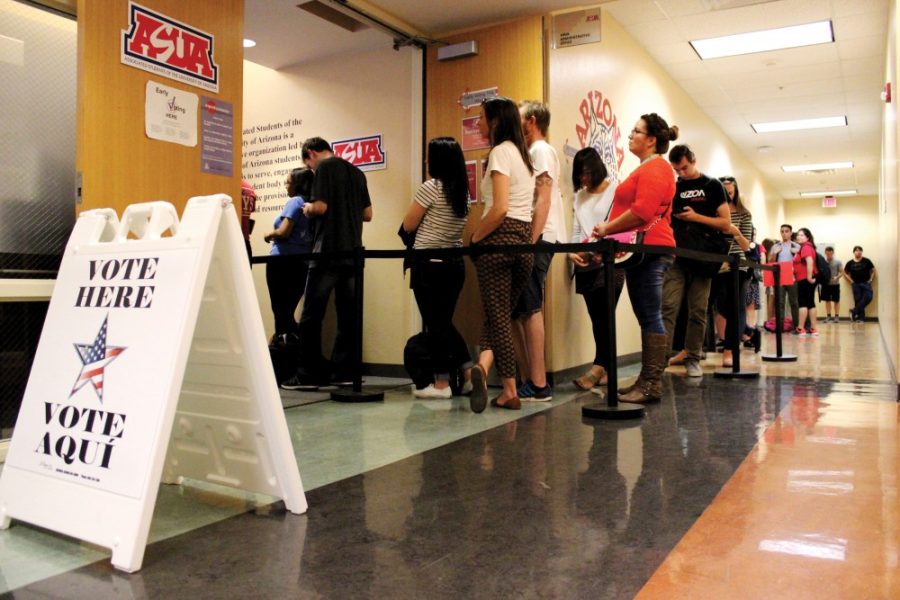
With less than 50 days until the 2020 U.S. presidential election, there has been a lot of news about the potential voter suppression that American voters could be facing. In an interview with Politico, President Trump said, “My biggest risk is that we don’t win lawsuits.” He continued on to say, “And if we don’t win those lawsuits, I think — I think it puts the election at risk.” The lawsuits he was referring to were filed by his administration and the Republican National Committee in more than a dozen states and seek to fight the expansion of mail-in voting as well as limiting voter access to the ballot box in November. In short, Trump and his Republican allies are attempting to limit access to voting this upcoming election cycle under the guise of concern for voter fraud when, in reality, fraudulent votes — especially via mail — are virtually nonexistent. What is this? This is textbook voter suppression.
Voter suppression can be defined as “a strategy used to influence the outcome of an election by discouraging or preventing specific groups of people from voting,” according to Wikipedia. For some, this may be their first time experiencing any type of voter suppression. For many others, this is not their first experience with this issue. Voter suppression is not a new problem in America. Since the birth of this country, only certain groups of people have been allowed to vote. Voter suppression in America has taken many forms. At one point in history, white women, Black Americans, Native Americans/Alaskan Natives, non-English speakers and poor people were all barred in one way or another from voting. Disenfranchisement occurred in a variety of ways that included literacy tests, poll taxes and explicit laws that prohibited a group of people from voting. In addition to Trump’s attempt at limiting voters’ access to a ballot this November, modern-day voter suppression also looks like felony disenfranchisement.
In 1870, the 15th Amendment was made to the U.S. Constitution, which stated: “The right of citizens of the United States to vote shall not be denied or abridged by the United States or by any State on account of race, color, or previous condition of servitude.” Despite the 15th amendment, the way elections were conducted was left up to the individual states which allowed room for discrimination against minorities. This discrimination was mainly directed at poor people and people of color. These groups faced similar voter suppression through poll taxes, literacy tests, laws prohibiting their vote and plain harassment and intimidation at the polls.
In addition to these obstacles, Black Americans were uniquely faced with the grandfather clause. In the 1890s, the grandfather clause was enacted in many places. It states that if your father or grandfather could vote before 1867, then you had the right to vote. This law largely denied suffrage to Black Americans whose grandfathers/fathers were enslaved at that time. This was the perfect way to ensure Black Americans never had the opportunity to vote, even for generations to come.
Native Americans and Alaskan Natives were also faced with their own particular suffrage obstacles. Despite being the original occupiers and nurturers of this land, Native Americans and Alaskan Natives were not eligible to vote because they weren’t considered citizens of the United States. Although the 14th amendment, which granted former slaves their right to American citizenship, was enacted in 1868, Native Americans and Alaskan Natives were exempt from that. It wasn’t until the Snyder Act of 1924, that granted citizenship to Native Americans and Alaskan Natives, that they were put on the path to obtaining their voting rights.
Both groups had a long road of fighting for their suffrage. With protests and marches, many people were arrested and even lost their lives while fighting for the right to participate in the democracy in which they lived. It wasn’t until 1965, when the Voters Right Act was passed, that discriminatory voting practices were outlawed across the country. And even then, it was met with much resistance in many states.
RELATED: The past century of race, riot and protest in the United States: A brief timeline
The vote of poor people and people of color has been suppressed throughout American history and is still suppressed to this day. Minority groups today face voter suppression through a lack of access to polls in their area and lack of transportation. In addition to that, voter suppression takes a new form in our modern society through felony disenfranchisement. Once someone is convicted of a felony, they lose their right to vote and, depending on the state, the right may be revoked for good. Currently, 6.1 million Americans have lost their right to vote due to a felony conviction. Looking closer at these statistics, one out of every 13 Black Americans have lost their right to vote because of felony disenfranchisement as compared to their everyone else where one out of every 56 non-Black Americans have lost their right to vote. The sad reality of voter disenfranchisement is that 77% of these disenfranchised voters are living in our communities, not behind bars.
Why does this matter? In America, there is a long history and pattern of finding any means to deny poor people and people of color their right to vote. Not having a voice in the democracy in which one lives is defeating and isolating. We have to think about why this continues to happen. Voter suppression is yet another means of institutional racism. Having a voice in a democracy should not be a privilege and, under our constitution, it is a birth-given right. So why are so many people denied that right?
Geraldine Espinosa is a junior and is majoring in journalism. She likes to bake and read in her free time. Follow the Daily Wildcat on Twitter









